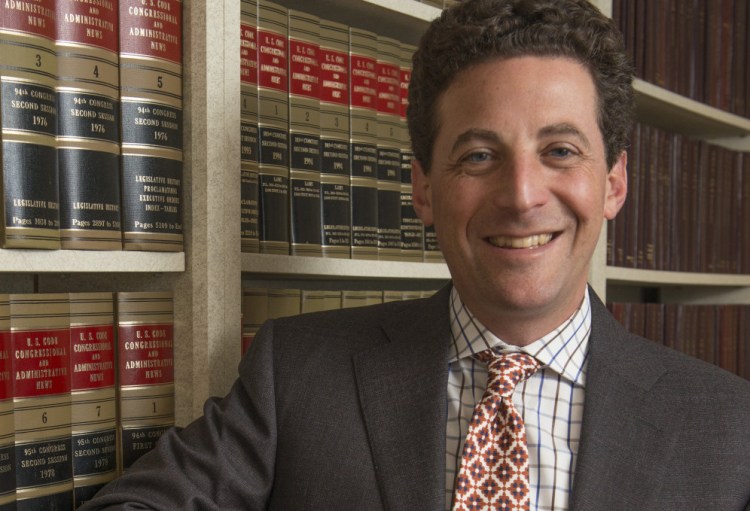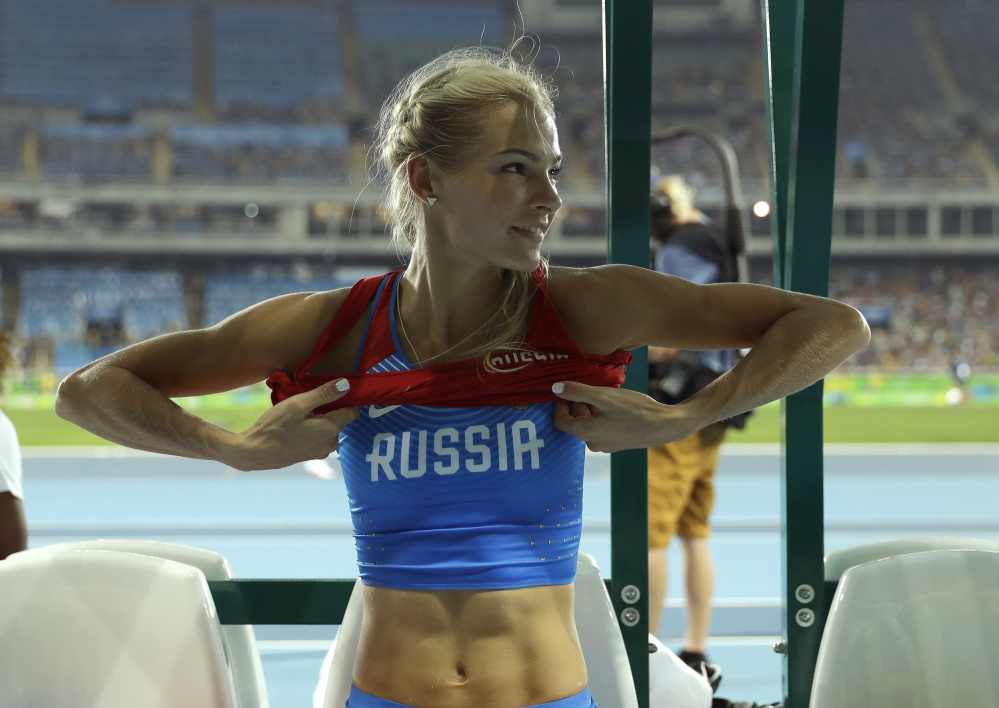A sports attorney based in Portland was thrust into the international spotlight this week when he successfully defended Russian long jumper Darya Klishina’s right to compete in the 2016 Summer Olympics in Rio de Janeiro.
Despite the rest of her track and field teammates being banned under suspicion of wide-scale doping, the 25-year-old Klishina was granted permission Monday to compete in Rio thanks to the efforts of Paul Greene, founder of Global Sports Advocates LLC.
Greene said he felt tremendous pressure to help his client prevail in her case, which was covered extensively by the international press.
“The Russian media was all over it,” said Greene, a former TV sports anchor. “When I woke up at 5 in the morning (on Monday), my phone had about 500 text messages.”
Greene said he received a call on Aug. 6 from Klishina’s agent, asking if he would represent the world-class athlete in her appeal of a ruling by the International Association of Athletics Federations, or IAAF.
The IAAF banned the entire Russian track and field team from this year’s summer games after an investigation found evidence of a state-run doping scheme in Russia that included tampering with the urine samples of Olympic athletes.
However, the association later made an exception for Klishina, who has been living full time in the U.S. since March 2014 and submitting to regular drug tests outside the Russian system.
But last week the IAAF reversed its earlier decision and suspended Klishina, saying in a statement that the eleventh-hour suspension was based on “new information” it had received about the former European indoor champion.
Klishina decided to appeal, and Greene flew with her to Brazil to defend his new client.
“I filed the appeal late, late Friday night,” Greene said. “Within 24 hours …, we had our hearing.”
The arbitration hearing occurred Sunday morning before a panel of three arbitrators – one from Australia, one from Egypt and another from Brazil. Greene’s objective was to convince the panel that the IAAF’s decision to suspend Klishina was legally invalid, and that there was no evidence Klishina’s eligibility to compete had been compromised by the conduct of the Russian drug testers.
“She already proved she was clean, and she’d been training and living in the United States,” Greene said.
The “new information” mentioned by the IAAF when it suspended Klishina was an investigator’s report submitted to the association in early August that said two of Klishina’s urine samples from 2013 and 2014 appeared to have been tampered with.
“A sample collected on 17 October 2014 and subsequently seized by WADA (the World Anti-Doping Agency) in December 2014 was found to bear marks and scratches consistent with the removal of the cap and contained urine from the applicant but also from another female athlete,” it said.
A third sample, from February 2014, showed a high level of testosterone and was subject to a “SAVE order” by the Russian Ministry of Sport, the report said. An earlier WADA investigation that resulted in the suspension of the entire Russian track and field team found that a SAVE order was used to instruct Russian testers to falsely report a sample as negative, even when there was evidence that doping did occur.
At the hearing for Klishina’s appeal, Greene argued that she had been living and training in the U.S. for more than two years prior to the Olympics, and that her drug tests during that time were administered almost exclusively outside the tainted Russian system, where the swapping and mislabeling of athlete samples was found to have occurred. A total of 11 samples were collected from Klishina outside of Russia during that time, all of them determined by legitimate testers to be clean.
Therefore, any improper handling of the few samples Klishina had submitted in Russia had no bearing on her eligibility to compete, Greene argued.
In an earlier affidavit to the IAAF, Klishina noted that if she had been doping and knew she would be protected in Russia, she would not have left for the U.S., where there was no such protection.
At 1 a.m. on Monday, Greene received word that the arbitration panel had agreed with his argument and ruled in Klishina’s favor.
In its 21-page decision, the panel noted that the IAAF had not suspended Klishina because it suspected her of doping. It had deemed her ineligible because of her association with the Russian system of covering up for athletes that had been doping.
The arbitrators said the fact that Klishina had been subject to other, compliant testing systems outside Russia for the period in question removed any “affect or taint” that the corrupt Russian system otherwise would have had on her eligibility.
“Further, the IAAF did not assert that the evidence established that the applicant had engaged in doping or other wrongful actions within the Russian system,” it said.
Greene said he has defended many athletes against allegations of doping, but Klishina’s case was unlike the others. For one thing, he had to prepare for the hearing while inside the Olympic Village, surrounded by the world’s top athletes and a swarm of international reporters.
“It was pretty surreal,” he said.
Klishina placed ninth in the long jump finals Wednesday. She told reporters that the stress of her ordeal with the IAAF negatively affected her performance, and she vowed to continue training and competing in preparation for the 2020 Olympics.
Greene said he was pleased that the international sports community ultimately ruled justly in Klishina’s case, and that he was given the opportunity to defend someone who was clearly innocent.
“I said to her, ‘This is why I went to law school,’ ” he said.
Send questions/comments to the editors.




